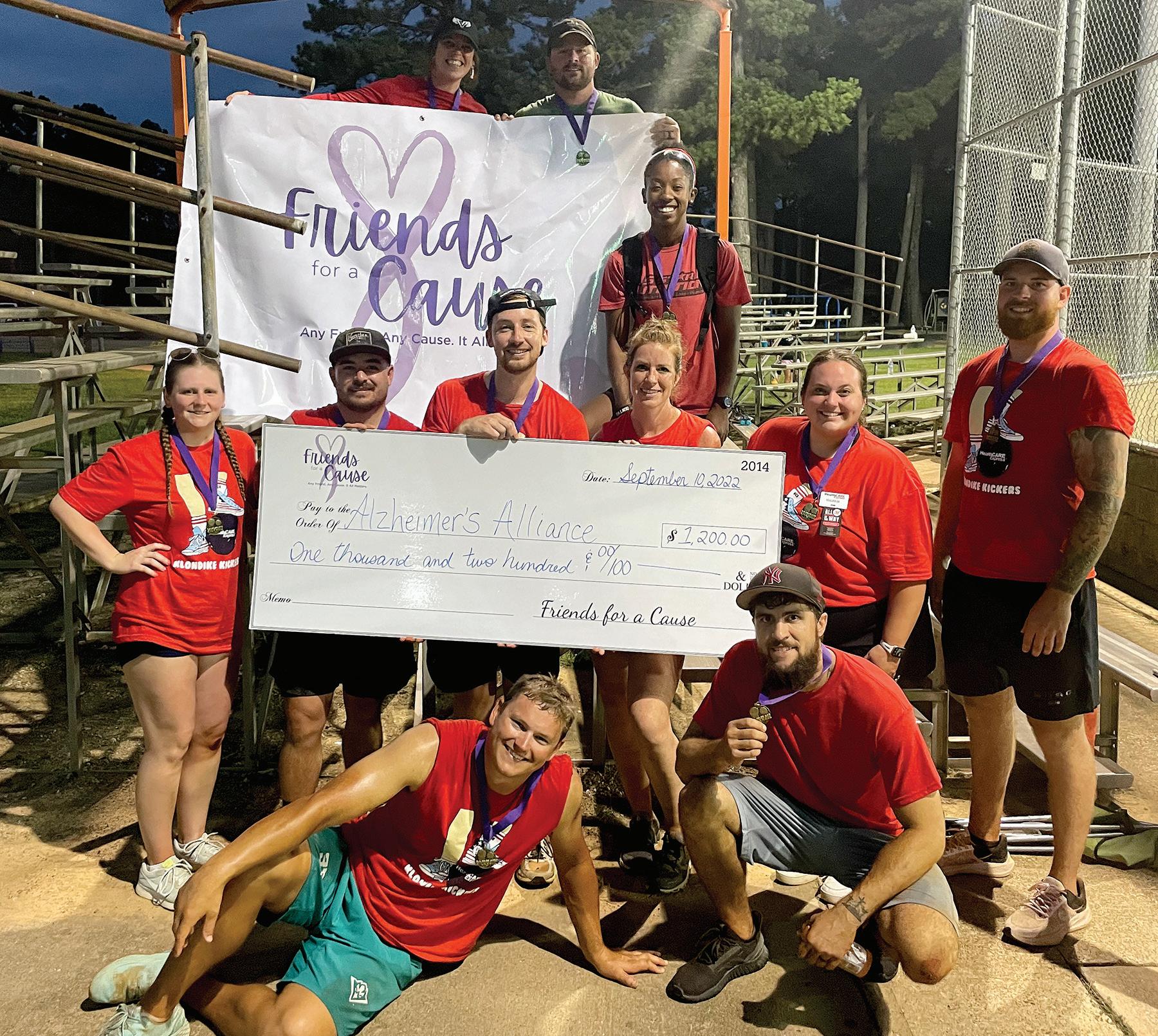
4 minute read
History Happens
BY VELVET HALL COOL Board President of the Texarkana Museums System
History happens to be something that many people are passionate about. The memories and emotions that get wrapped in the quilt that a grandmother made for her first grandchild; the doctor’s leather satchel worn from years of house calls and trips to the hospital stored in a corner of his son’s home; the Mason’s sword secreted away with meanings known only to his fellow Masons. These items take on less of a tangible meaning and waft emotions to those who were passionate about their family, careers, and friends.
Passion can drive each of us to hold our family closer, strive to achieve more in our careers, or forge tighter bonds with our friends. We may never know the rewards we seek and yet continue to reach out to grasp more of what we are passionate about.
This month, we will celebrate the anniversary of the birth of one man from Texarkana, Arkansas, whose passion drove him to create. To create music that, while little known for most of his lifetime, has proven to be remarkable in the world of music.
Born on October 12, 1912, to Samuel Charles Nancarrow and Myra Brady Nancarrow, Conlon Nancarrow hailed from a family with strong influences on the history of Texarkana. When Conlon was in his teens, his father served as mayor of Texarkana, Arkansas from 1927 to 1930. During his early years, the trumpet and jazz would begin to ignite Conlon’s passion for music. He would go on to study music in Cincinnati and Boston with the likes of Roger Sessions, Walter Piston and Nicolas Slonimsky. Most names the average person will know very little about, but minds that exposed Nancarrow not only to the mechanics of playing music, but the structure, composition, and theories behind music – perhaps leading Nancarrow towards the path his passion would follow for the remainder of his life.
During his years outside of Texarkana, Nancarrow also became exposed to political beliefs that would greatly shape his future; he became a member of the Communist Party and joined the Abraham Lincoln Brigade to fight for the Spanish Republic in 1936. During this period of American history, Communist party members would be ostracized on many levels in the United States. Movie stars like Charlie Chaplin and Orson Welles would be blacklisted and Nancarrow’s fellow brigade members would have their U. S. passports delayed or rejected. Unwilling to be persecuted, Nancarrow would find solace from political harassment by moving to Mexico in 1940 and becoming a Mexican citizen in 1956.
Passionate about composing, Nancarrow stumbled in his early works because his compositions were difficult for performers to play. The complexity of his work often required more than the hands could provide. Borrowing from ideas in the book New Musical Resources, Nancarrow sought out the player piano and found that





it was capable of emulating the complex rhythmic patterns his mind was composing and at far greater speeds than the human performer.
Composition and mechanics would drive Nancarrow to become one of the first composers to use auto-playing instruments. Many popular bands and musicians of the 1980s like Herby Hancock, David Bowie, and Duran Duran owe a thanks to Nancarrow for delving into what would become “New Music.”
While using the influences of jazz, boogiewoogie, and classical music, Nancarrow would modify his player pianos to play more robustly. He would experiment with leather and metal coverings for the hammers of the player piano and fashion his one devices to create punch cards to load into the player pianos with his works.
Imagine the passion it must take to forge ahead in the world of music in a manner that is untested and tediously slow. The mechanics of Nancarrow’s compositions and creating his own punch cards was arduous and - for most of his career - relatively unrewarding. Finally, at the age of 57, Columbia Records would dabble in modern music and release an album of Nancarrow’ s works. In 1975, in his sixties, Nancarrow would begin to garner more public attention. Peaking in the 1980s, he was awarded a prestigious MacArthur Award of $300,000 for his music. Seemingly unmotivated by a desire to be commercially successful, pure passion drove Conlon Nancarrow to compose music that would lead some to call him “the greatest discovery since Weber and Ives.…” To this day, however, many consider his music to be hard to enjoy. Nancarrow was driven by passion to the point that the approval of other listeners was a bonus for his works – not a necessity.

Born and raised in Texarkana, Velvet Hall Cool has strong ties to both Texas and Arkansas but will always consider herself a Class of ‘87 Razorback. She loves to share stories of her nine wonderful grandchildren. When it comes to listening, you can always perk up her ears with stories that speak to personal history and the lessons we learn during our lifelong journey.












